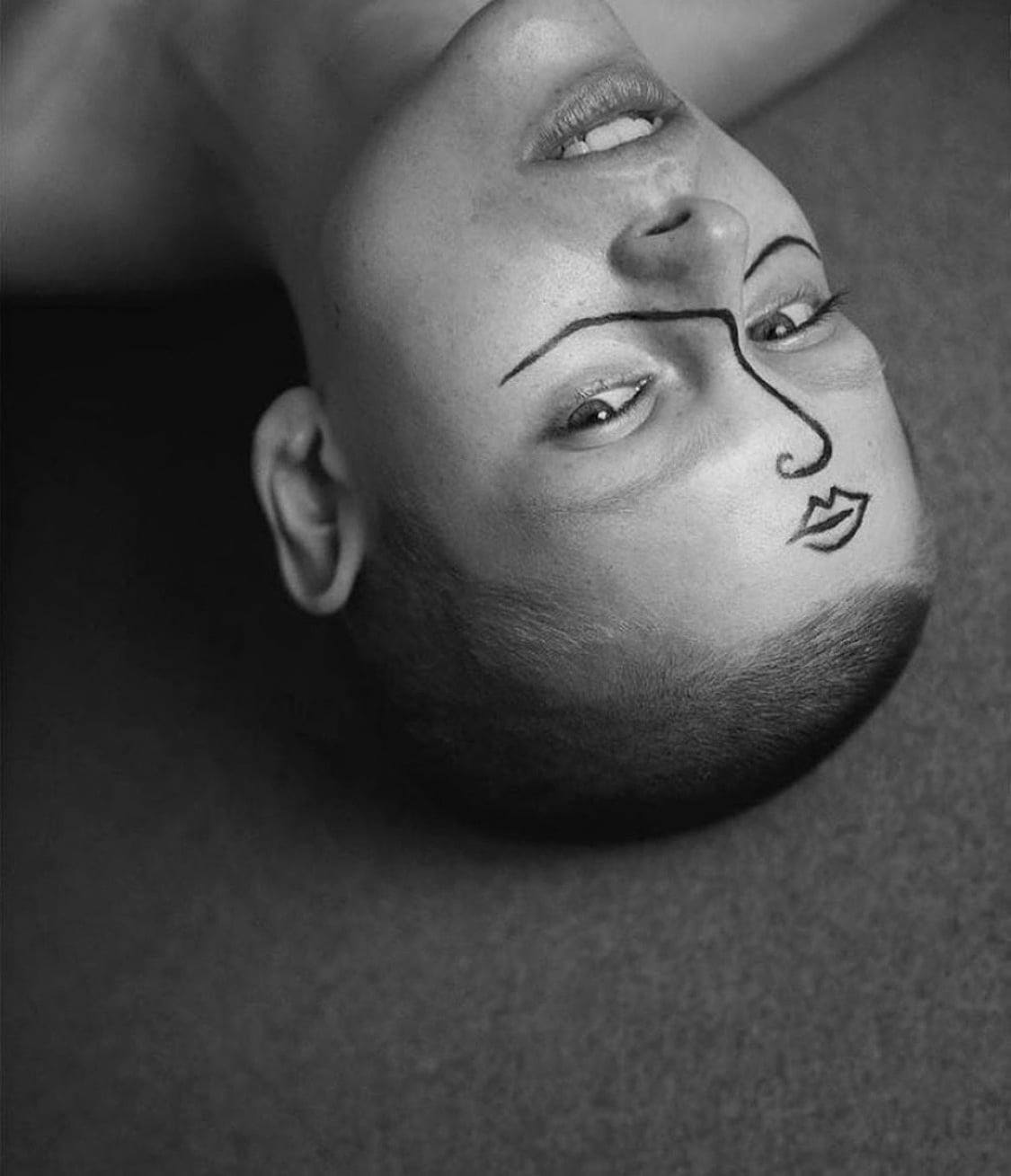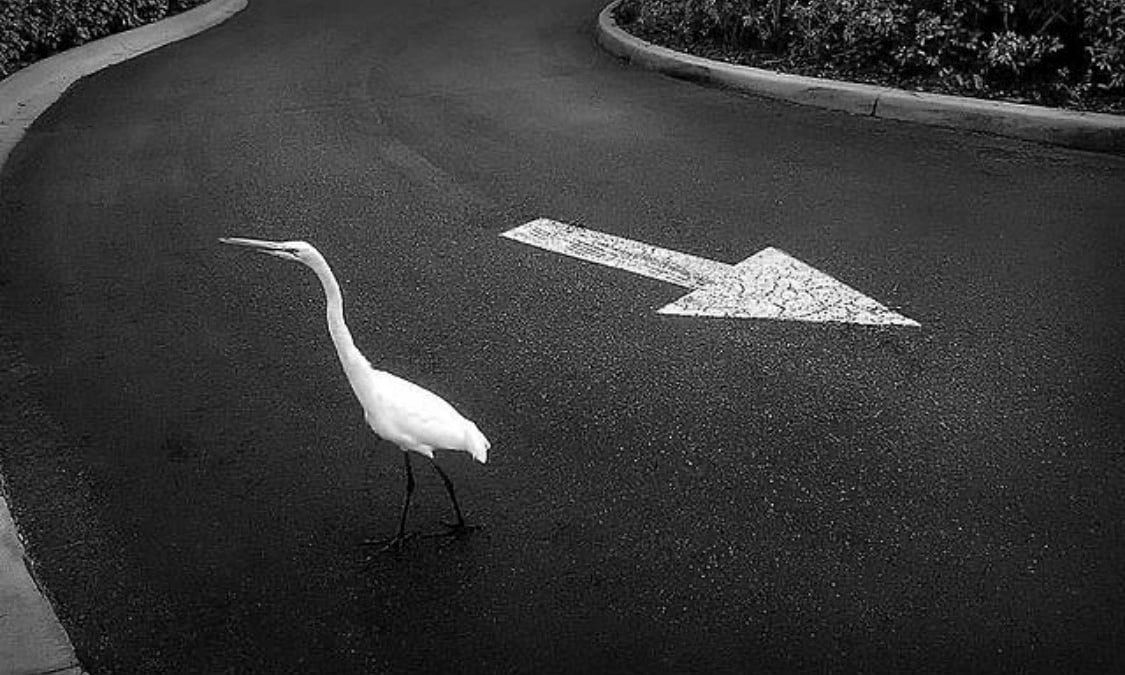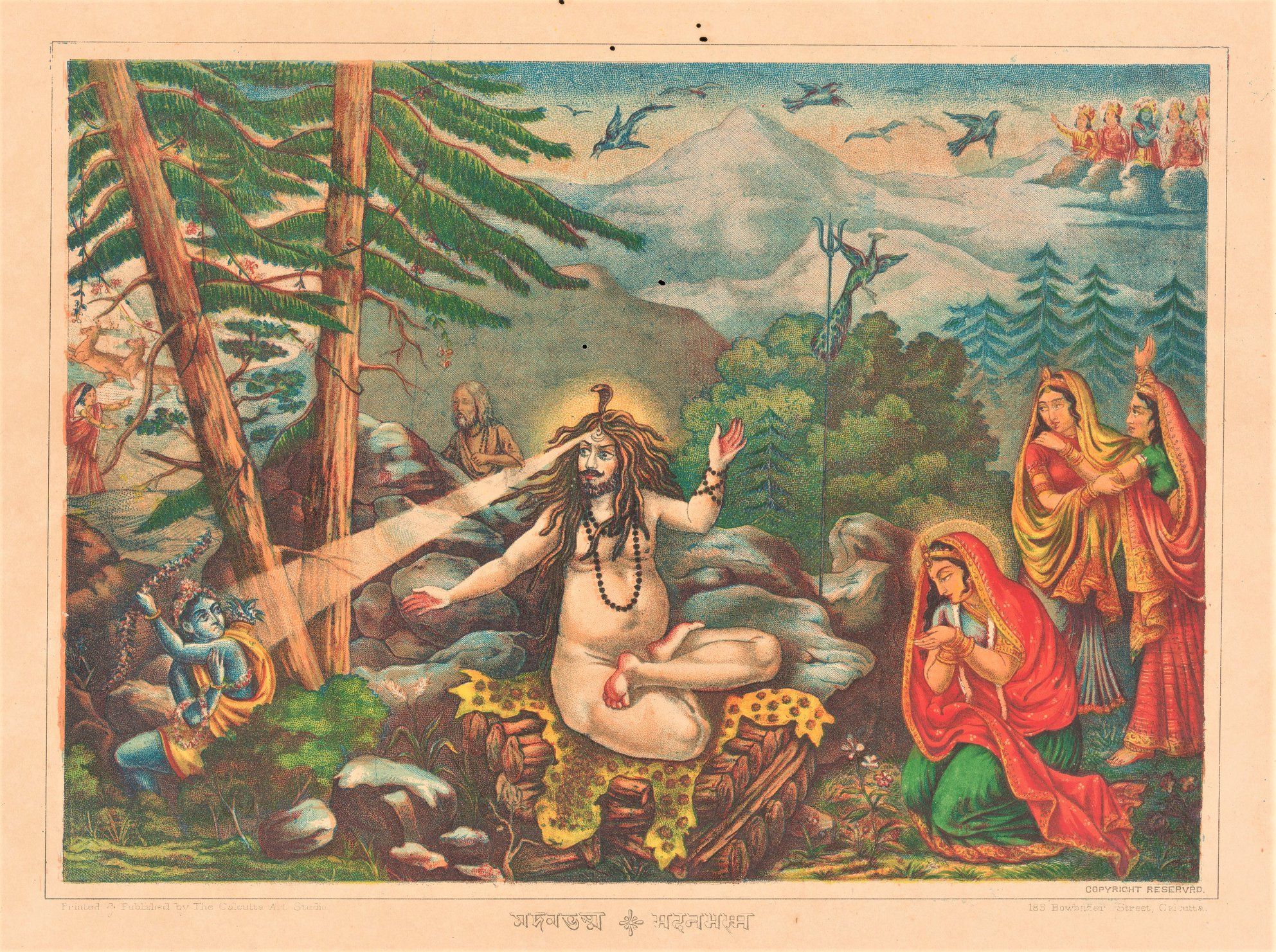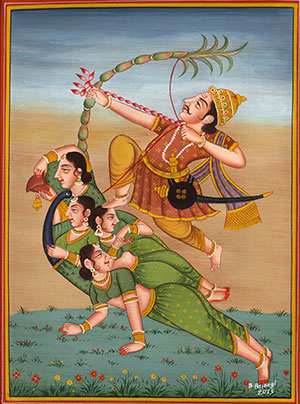meditation 64

When any sense organ
whether voluntarily
or involuntarily
comes in touch
with its object . . .
mediate
on the starting point
of contact
and thus enter
the Void.
Light shines.

Notes:
The above is Verse 89 of the Vijñāna Bhairava and certainly takes delight in the scripture's theme of the One playfully giving rise to the many.
Serendipitously the noun Vyāghāta ( व्याघात ), which, within various contexts and writings and milieu and centuries and regions within the subcontinent may strike one as does the pealings of many identical bells: as if the hands pulling the ropes were building some huge murmuration of meanings winging aloft above the same sound.
Vyāghāta (व्याघात) a masculine noun, derives from the root (√han): striking against, beating, wounding.
The noun may suggest an obstacle, an impediment or stroke or strike or wounding or act of destruction or blow or shot – agitation or disturbance or confusion or commotion or shock or defeat or hindrance or abandonment.
It can mean (in logic), a contradictory, absurd, illogical, or inconsistent statement.

Even more serendipitously, in the 17th century, and dating back perhaps even to the 12th, it could mean a rhetorical figure productive of two different or opposite effects arising from the same cause, or by means of the same (or similar) agency.

For instance, the statement below the image of Shiva is a vyāghāta: the common agent being the eye.

The God of Love (Kamadeva), reduced to ashes by the eye of Śiva, is brought to life again by the eye of beautiful women (Kāvyaprakāśa; Kuvalayānanda).

[And even more serendipitously still, this is Verse 89 of the Vijñāna Bhairava, and the vyāghāta is one of precisely 89 arthālaṃkāras (figures of speech based on sense rather than sound) listed some centuries later than the scripture was written, by Cirañjīva Bhaṭṭācārya (fl. 17th century), in his Kāvyavilāsa.]
Verse 89 may, for some readers and translators, suggest varying meanings.
For instance, within Swami Lakshmanjoo's sphere of influence alone, there have arisen at least a few interpretations.
Just as you have the impulse to do something – stop. (Paul Reps)
When some organ of sense is obstructed in its function by some external cause or in the natural course or by self-imposed device, then the aspirant becomes introverted, his mind is absorbed in a void that transcends all duality and there itself his essential Self is revealed. (Jaideva Singh)
When any sense organ involuntarily comes in touch with its object, or you deliberately let it come in contact with its object, meditate on the starting point of contact and thus enter the void. Light shines. (Pandit Dina Nath Muju and Swami Lakshmanjoo)